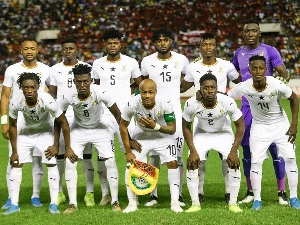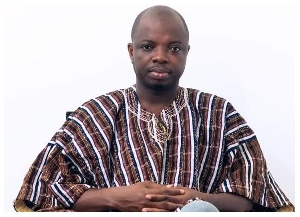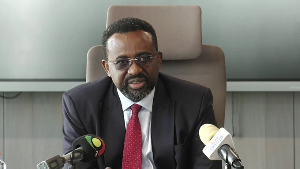Ghana's national football team, the Black Stars, has long represented national pride and African football brilliance.
However, their erratic results throughout the years have disappointed many fans and raised questions about the fundamental causes of this tendency. This essay dives into the issues that the Ghana Black Stars face, emphasizing the importance of consistency in player and coach selection. It also looks at the necessity of grooming and developing local talent, as well as tackling issues like political meddling and over-monetization within the team.
The frequent change of players and coaches has clearly hampered Ghana's ability to succeed consistently on the international scene. Successful national teams rely on strong partnerships between coaches and players, which promote effective communication, tactical knowledge, and team togetherness. However, Ghana's frequent changes disturb this continuity, resulting in disjointed performances and a failure to attain their full potential.
One of the major disappointments for the Ghana Black Stars is the alleged meddling in player selection. Authorities are said to favour their preferred players over more deserving and skilled individuals, resulting in low team morale and poor performance. To tackle this difficulty, a clear and merit-based selection process must be devised while preserving the team's composition.
Ghana has a long history of generating great footballers with immense potential. However, the country has frequently relied on scouting for established players, ignoring the need to invest in fostering and refining raw talent at the grassroots level. Ghana can leverage its intrinsic talent pool and lay the groundwork for long-term success by enhancing the local league and providing adequate funding, coaching, and facilities.
The over-monetization of Ghanaian football culture, notably within the supporters' union, has had a negative impact on player devotion and dedication. When supporters are monetarily motivated rather than genuinely passionate about the game, it reduces the capacity to create an authentic and supportive environment. Encouraging true fan interaction and instilling a sense of duty in the supporters' union may reignite the players' dedication and drive for better performance.
Another factor is the lack of commitment by Ghana's foreign-based players which is a big concern for the non-performance of the national team. Especially when the majority of the players chosen are foreign-based. This problem is caused by a mixture of circumstances, including the demands of club commitments, logistical challenges, the availability of stronger national team possibilities, and financial constraints. Addressing these concerns is critical to encouraging and developing greater devotion among Ghana's foreign-based players, thereby boosting the national team's performance.
Finally, Ghana's troubles with consistency in the Black Stars may be traced back to a number of interconnected causes. To achieve sustained success, player and coach selection must be stable, with political meddling kept to a minimum. The country must prioritize the development of local talent at the grassroots level, investing in resources and facilities that promote growth.
Overcoming the ills of over-monetization and instilling true dedication in both supporters and foreign-based players is critical to renewing the team's performance. By confronting these difficulties front-on and implementing a well-defined long-term strategy, Ghana can restore its due place as a football superpower, ensuring the Black Stars shine brilliantly on the world scene.
Opinions of Thursday, 25 January 2024
Columnist: Evans Mawunyo Tsikata



















